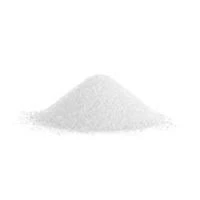
Exploring the Benefits and Applications of E220 Food Additive in Modern Cuisine
The Role of E220 Additive in Food Preservation
Food preservation has been an essential practice for centuries, allowing people to extend the shelf life of perishable goods and maintain their quality. Among the numerous food additives used, E220—commonly known as sulfur dioxide (SO2)—holds a significant place. This compound is not only crucial in maintaining the freshness of various foods but also plays a vital role in the food and beverage industry. Understanding E220 and its applications can provide insight into its importance in our daily diets.
What is E220?
E220, or sulfur dioxide, is a colorless gas with a pungent smell, produced naturally from volcanic eruptions and industrial processes. In the context of food preservation, E220 is primarily utilized for its antioxidant and antimicrobial properties. It inhibits the growth of microorganisms and prevents enzymatic processes that can lead to spoilage and degradation. Its effectiveness as a preservative makes it a popular choice in the food industry.
Applications of E220
E220 is widely employed in various food products, particularly dried fruits, wine, fruit juices, and certain vegetables. When applied to dried fruits like apricots and raisins, sulfur dioxide helps retain color, enhance flavor, and prevent spoilage. It is also a vital component in the winemaking process, where it helps stabilize wine, prevent oxidation, and preserve aromatic qualities. Additionally, E220 is used in the preservation of certain vegetables, ensuring that products such as potatoes and other root vegetables remain fresh for longer periods.
Benefits of E220
e220 additive

The benefits of using E220 in food preservation extend beyond just increased shelf life. It plays a crucial role in maintaining the aesthetic qualities of food, ensuring that fruits retain their vibrant colors and appealing textures. This is particularly important in the food service industry, where presentation can significantly influence consumer perception and enjoyment.
Moreover, E220 serves as a protective agent against spoilage, reducing food waste and increasing economic efficiency for producers. By extending the shelf life of products, companies can better manage their inventory and reduce losses from spoilage. This is especially beneficial for businesses that handle perishable goods, allowing them to offer fresher products to consumers while reducing costs.
Safety and Regulations
While E220 offers numerous advantages, there are certain considerations concerning its safety and potential side effects. Some individuals may have sensitivities or allergies to sulfur dioxide, which can lead to allergic reactions or respiratory issues. To mitigate these risks, regulatory agencies around the world have established guidelines and permissible limits for E220 in food products.
In the European Union, for example, E220 is classified as safe when used within specified limits. The authorities mandate that foods containing sulfur dioxide above certain concentrations must be labeled accordingly, ensuring that consumers are informed. It is crucial for individuals with known sensitivities to read labels carefully and be aware of any potential risks associated with E220 in food products.
Conclusion
E220, or sulfur dioxide, plays a pivotal role in food preservation, enhancing the quality and shelf life of various products in the food and beverage industry. Its applications span a wide range of items, from dried fruits to wine, making it a staple additive in modern food processing. While the benefits of E220 are evident, it is essential for consumers to be aware of its potential allergic reactions and the regulatory oversight governing its use. As the food industry continues to evolve, the role of E220 remains significant, ensuring that we can enjoy fresh and flavorful foods for longer periods.
-
The Safety Challenges of Ammonium Nitrate FertilizerNewsJun.26,2025
-
The Critical Role of Mining ChemicalsNewsJun.26,2025
-
Shelf Life of Glacial Acetic Acid Food GradeNewsJun.26,2025
-
Enhancing PVC Longevity with 1,2,3-Benzotriazole InnovationsNewsJun.26,2025
-
China’s Dominance in Food Additive ProductionNewsJun.26,2025
-
Can Aluminum Hydroxide Replace More Toxic Alternatives?NewsJun.26,2025
-
PE and PP Plastics with Benzotriazole AdditivesNewsJun.12,2025
Hebei Tenger Chemical Technology Co., Ltd. focuses on the chemical industry and is committed to the export service of chemical raw materials.
-

view more DiethanolisopropanolamineIn the ever-growing field of chemical solutions, diethanolisopropanolamine (DEIPA) stands out as a versatile and important compound. Due to its unique chemical structure and properties, DEIPA is of interest to various industries including construction, personal care, and agriculture. -

view more TriisopropanolamineTriisopropanolamine (TIPA) alkanol amine substance, is a kind of alcohol amine compound with amino and alcohol hydroxyl, and because of its molecules contains both amino and hydroxyl. -

view more Tetramethyl Thiuram DisulfideTetramethyl thiuram disulfide, also known as TMTD, is a white to light-yellow powder with a distinct sulfur-like odor. It is soluble in organic solvents such as benzene, acetone, and ethyl acetate, making it highly versatile for use in different formulations. TMTD is known for its excellent vulcanization acceleration properties, which makes it a key ingredient in the production of rubber products. Additionally, it acts as an effective fungicide and bactericide, making it valuable in agricultural applications. Its high purity and stability ensure consistent performance, making it a preferred choice for manufacturers across various industries.











